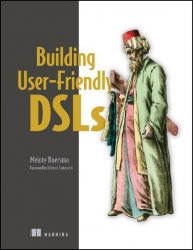 Название: Exploring Blockchain Applications: Management Perspectives
Название: Exploring Blockchain Applications: Management PerspectivesАвтор: Sezer Bozkus Kahyaoglu, Vahap Tecim
Издательство: CRC Press
Год: 2024
Страниц: 304
Язык: английский
Формат: pdf (true)
Размер: 11.5 MB
In this book, the development process of blockchain algorithms and examples of their applications in different sectors are explored. The opportunities and challenges of blockchain implementations that arise in making technological innovations usable in corporate structures are discussed. In this respect, the book aims to deal with both the conceptual framework and the real challenges and opportunities encountered in practice regarding the blockchain applications. It is tried to contribute to the literature by presenting practical blockchain application suggestions to the readers on a scientific basis.
It is a fact that blockchain technology is considered one of the most disruptive and revolutionary innovations after the invention of the internet. Blockchain technology, which was first used for cross-border payments, is coming up with a new application area in a different sector every day. The main purpose of Blockchain-based systems is to spread the "trust" service provided by a central intermediary to machines in transactions between two parties. Thus, it removes the need for this trust from the monopoly of a single intermediary. Blockchain implementation scenarios are to establish math-based trust in an untrusted environment.
Blockchain is built upon a decentralized system of data management, and utilizes a peer-to-peer infrastructure. It is a fact that blockchain applications have an enormous potential for industries and services as a basic and permanent solution for trust and transparency problems in the business world. Blockchain-based applications have revolutionized various industries worldwide. The features of transparency, security, and immutability offered by blockchain have made it suitable for fulfilling diverse requirements in different business fields and technological domains. This book aims to provide valuable insights to professionals and academics, as there is limited research available on Blockchain applications from a management perspective.
Blockchain is widely recognized as a “disruptive technology” capable of reshaping our social and economic systems. The key idea is that blockchain has the potential to transform the delivery of products and services, providing organizations with new perspectives to gain a competitive advantage and enhance their financial and operational performance. It is worth mentioning that blockchain technology serves not only organizational purposes but also holds strategic significance in facilitating peer-to-peer communication and securely storing a chronologically linked registry of transactions through cryptographic techniques.
While exploring the complexity of blockchain applications in different sectors, the emerging risks are also examined from a management perspective. In particular, it is aimed to be a key work that the management levels of the enterprises can benefit from in the decision-making processes.
It will be seen that blockchain technologies will be used unlimitedly in design, planning, management and decision making. This book will also introduce new visions for practitioners to use different blockchain technologies and methodologies to face problems.
Скачать Exploring Blockchain Applications: Management Perspectives
[related-news] [/related-news]
Комментарии 0
Комментариев пока нет. Стань первым!















